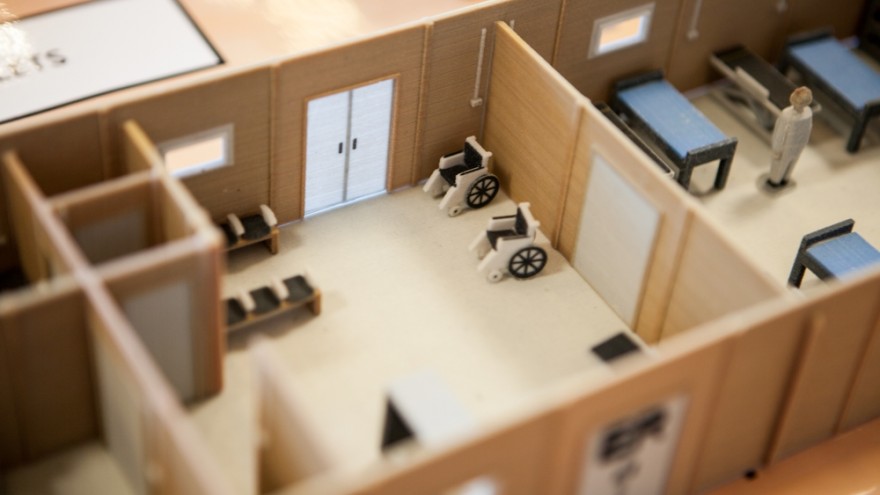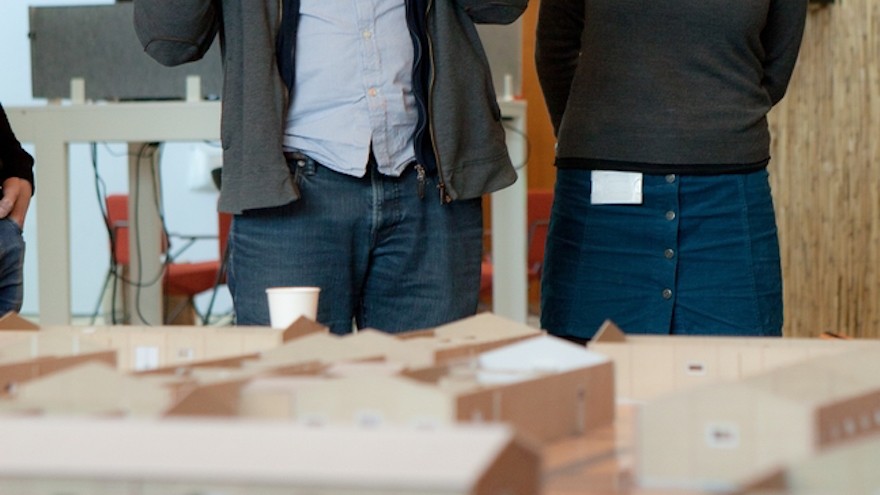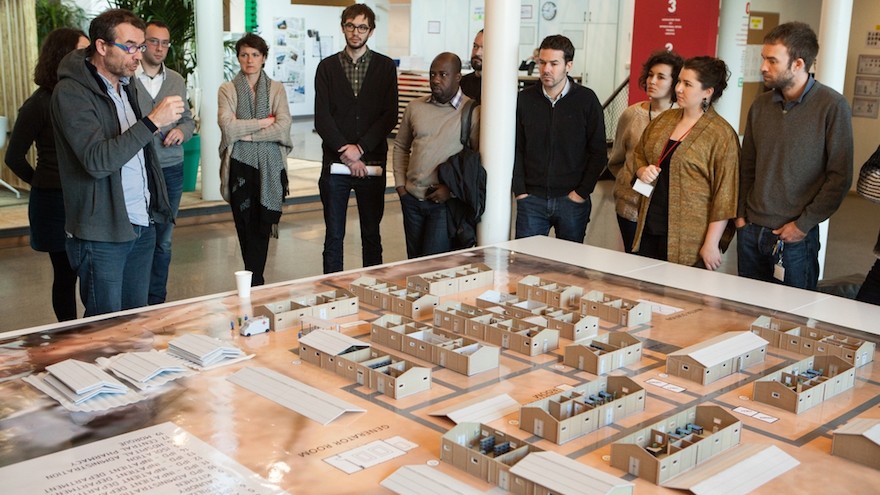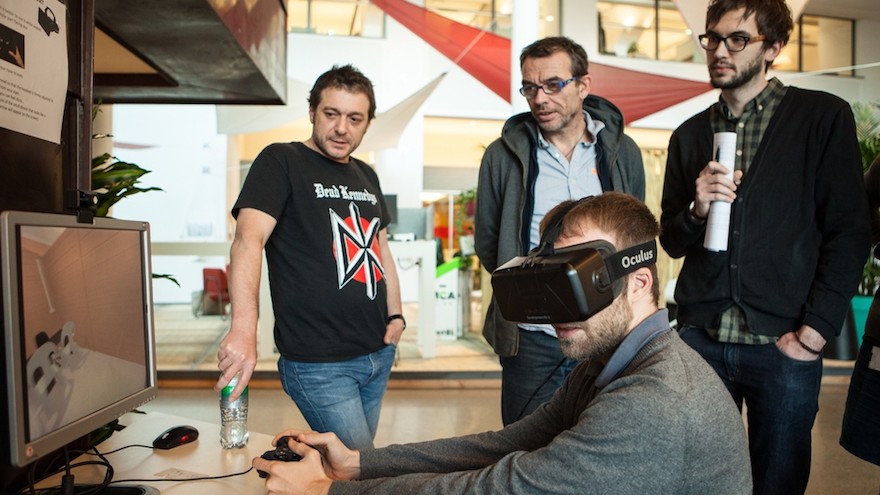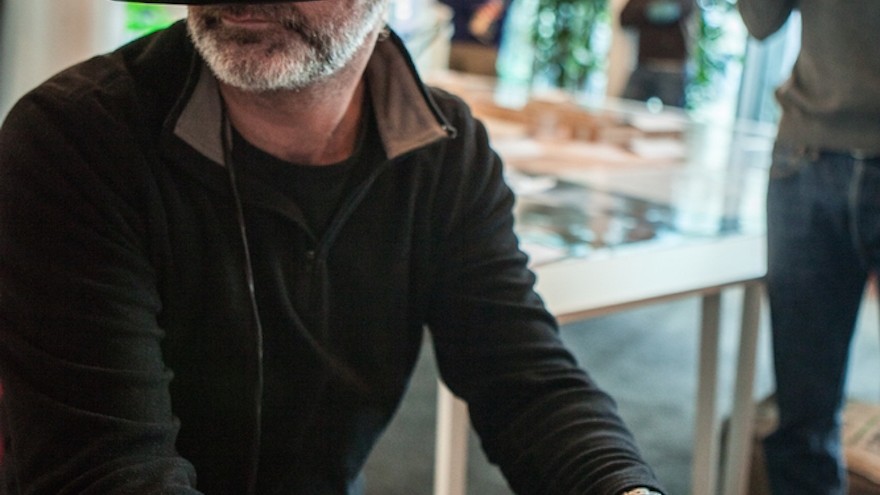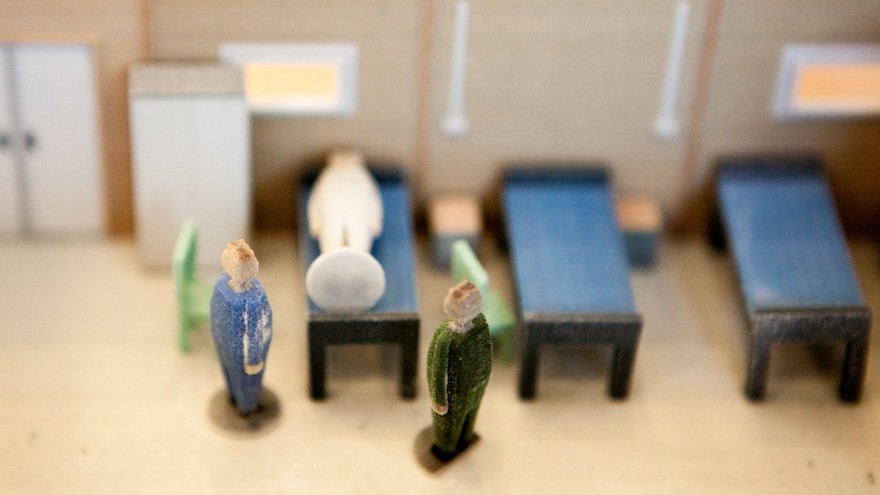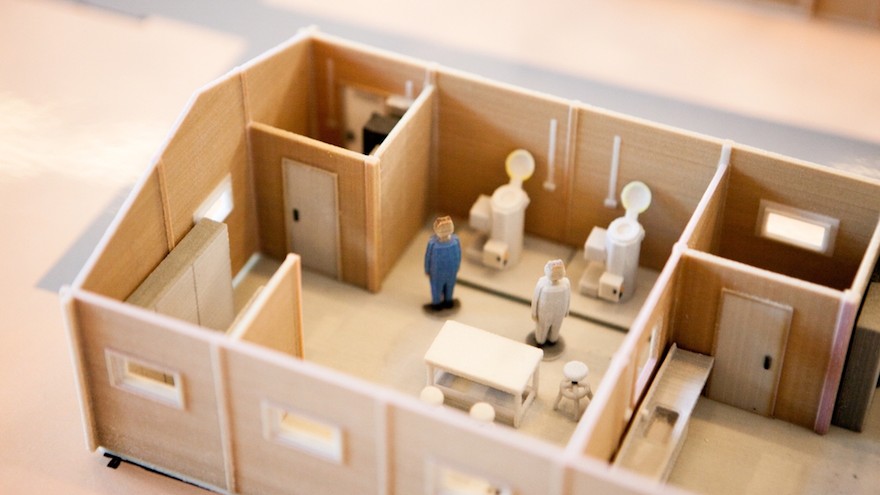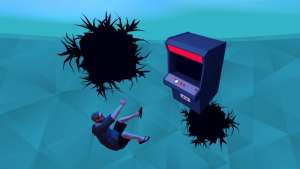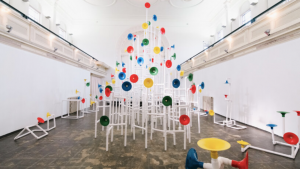From the Series
When designing a hospital, it’s standard practice for Médecins Sans Frontières/Doctors Without Borders (MSF) to involve the medical and logistical teams in the initial 2D design phase. However, after the first successful application of 3D printing and virtual reality technology to the design of an MSF field hospital, this could be soon a thing of the past.
Whilst both 3D printing and virtual reality technology have been on the market for some time now, this was the first attempt at adapting this technology to the way MSF works during the pilot phase of an emergency project.
“The idea of this project was really to see how we can make use of 3D printing technologies and virtual reality to help MSF better design our hospitals,” said Elvina Motard, MSF Technical Team Leader.
To complete the proof-of-concept, Motard worked with expert consultants at development agency Pyxis to take existing plans for a hospital built by MSF during the devastating Typhoon Haiyan in Cantahay, Philippines (2013) and make them digital. They then 3D-printed the hospital using composite materials at a scale of 1:50 (2cm=1m) using a 3D Systems Projet 660Pro printer, and developed a virtual reality experience using a game engine to generate a virtual world where the user can navigate through the hospital using a virtual reality headset and game pad.
For this initial project, MSF chose to develop the full 3D platform, which includes the virtual reality headset, as this level of immersion could be useful for validating a design as well as for trainings and briefings for field and medical staff. However, it will soon also be possible to see the 3D model files using a URL link in a web-browser.
“Such technologies will undoubtedly make discussions more efficient, more vivid and more graphic,” said Jean Pletinckx, MSF Director of Logistics. “They will allow people working in the field to see inside our future hospital and this will improve hospital design as well as training and briefings. It will also allow our partners, like local ministries of health, to better understand what we can provide and better feedback on our suggestions.”
The 3D printing and virtual reality technology project took four months from conception to final delivery, though future projects will be faster given that the 3D items created during this test phase are now available for use. Whilst the Cantahay proof-of-concept hospital was developed using an already built and working hospital, in the near future pre-construction 3D models could be sent digitally anywhere in the world and viewed on any web browser so that field staff can view and evaluate the design beforehand. This will ensure structure design is done in the most efficient way.
“As the project develops further, in a next phase, it will be possible to create a dynamic environment, simulating patient and staff movements” says Jean Pletinckx. “We are at a stage now where our staff will really be able to feel or see what they will face in the field before they leave and indeed, even before the structure is built. There is no doubt that this is the way we will work in the future.”
For this first project, MSF worked with development partner Pyxis as a client, with Pyxis developing the technology and tools based on MSF’s needs and objectives to shape an idea born within MSF.
However, MSF is now looking to collaborate and form partnerships with other organisations to develop these tools further. Although this project was developed by one of MSF’s headquarters in Brussels, interested partners based anywhere in the world are welcome to contact MSF on logistics.department@brussels.msf.org
Médecins Sans Frontières (MSF) is an international, independent, medical humanitarian organisation that delivers emergency aid to people affected by armed conflict, epidemics, natural disasters and exclusion from healthcare. MSF offers assistance to people based on need, irrespective of race, religion, gender or political affiliation. The organisation developed this project in partnership with Pyxsis, a Belgian leader in the field of 3D and virtual reality and is looking to build partnerships with other companies, foundations or universities to assist in humanitarian innovations.

